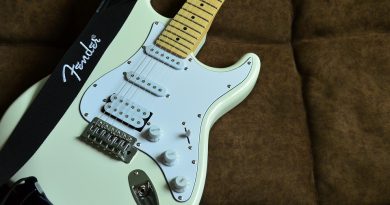Mastering the Basics: A Beginner’s Guide to Guitar Improvisation
Mastering the Basics: A Beginner’s Guide to Guitar Improvisation
Guitar improvisation is an essential skill for any guitarist looking to express themselves creatively and add depth to their playing. While it may seem daunting at first, mastering the basics of improvisation can be a rewarding and fulfilling journey. In this article, we will break down the fundamentals of guitar improvisation for beginners, providing you with the tools and techniques you need to start improvising with confidence.
Understanding Music Theory
The first step to mastering guitar improvisation is to have a solid understanding of music theory. This includes familiarizing yourself with scales, chords, and how they interact with each other. Knowing the key you are playing in is essential, as it will determine which scales and chords will work best for your improvisation.
Start by learning the major and minor scales, as these will form the foundation of your improvisation. Experiment with different scale patterns and practice playing them up and down the neck of the guitar. Once you feel comfortable with the scales, try incorporating them into chord progressions to see how they fit together.
Developing Your Ear
One of the most important skills for any improvising guitarist is developing a good ear. This means being able to listen to a piece of music and play along with it, picking out melodies and chords by ear. Practicing playing along with songs you enjoy can help improve your ear training and make it easier to improvise on the spot.
Another way to develop your ear is to practice playing along with backing tracks or jam tracks. These provide a musical context for your improvisation and can help you get a feel for different styles and genres of music. Experiment with different tempos and keys to further develop your ear and improve your improvisation skills.
Experimenting with Techniques
Once you have a good grasp of music theory and ear training, it’s time to start experimenting with different techniques to enhance your improvisation. Techniques such as bending, sliding, hammer-ons, pull-offs, and vibrato can add depth and emotion to your playing. Practice these techniques individually and try incorporating them into your improvisation to see how they can enhance your playing.
Exploring Different Styles
Guitar improvisation is a versatile skill that can be applied to a wide range of musical styles. Whether you prefer blues, rock, jazz, or classical music, there are opportunities for improvisation in every genre. Take the time to explore different styles and experiment with different techniques to find what works best for you.
Listening to and studying the playing of guitarists in different genres can also help you develop your improvisational skills. Pay attention to their phrasing, tone, and dynamics, and try to incorporate elements of their playing into your own improvisation. By exploring different styles and techniques, you can expand your musical vocabulary and become a more versatile guitarist.
Practicing Regularly
Like any skill, guitar improvisation takes time and practice to master. Make a habit of practicing regularly, setting aside dedicated time each day to work on your improvisation skills. Start by practicing scales, chords, and techniques, then gradually work on incorporating them into your improvisation.
One effective practice technique is to record yourself improvising and listen back to identify areas for improvement. This can help you track your progress and make adjustments to your playing as needed. Additionally, practicing with other musicians can help you develop your improvisation skills in a live setting and foster a sense of creativity and collaboration.
Conclusion
Mastering the basics of guitar improvisation is a rewarding and fulfilling journey that can enhance your playing and creativity as a guitarist. By understanding music theory, developing your ear, experimenting with techniques, exploring different styles, and practicing regularly, you can become a confident and skilled improviser. Remember to be patient with yourself and enjoy the process of learning and growing as a musician. With dedication and practice, you can become a master of guitar improvisation and unleash your creative potential on the instrument.






